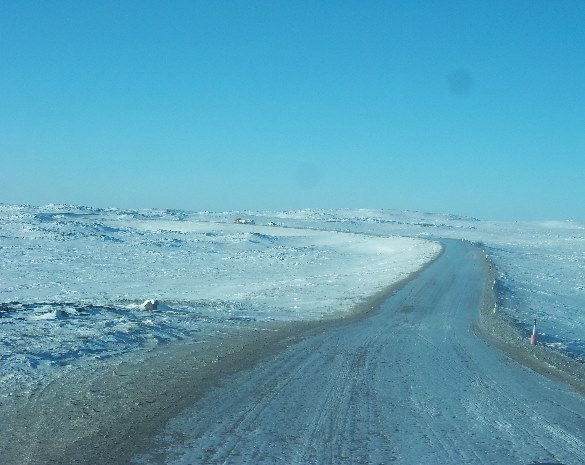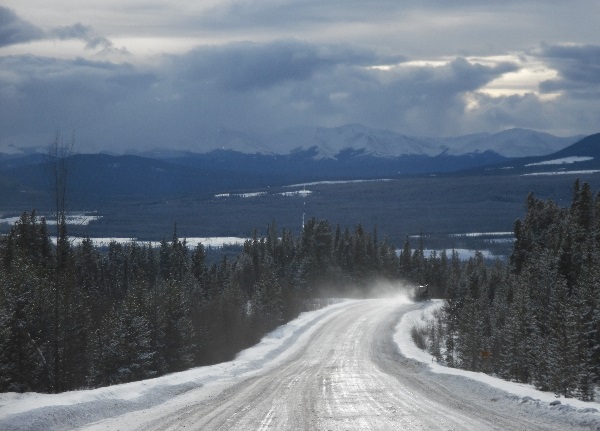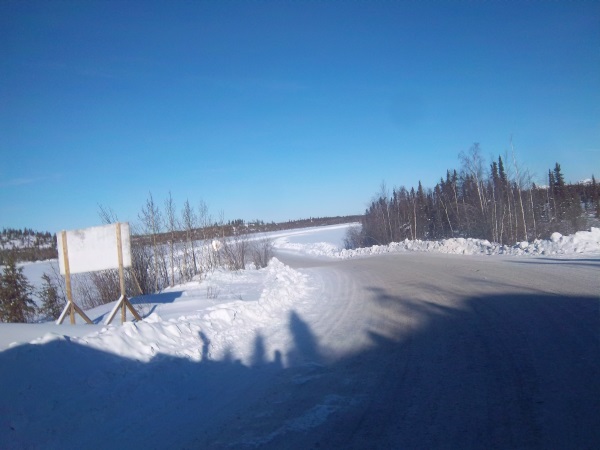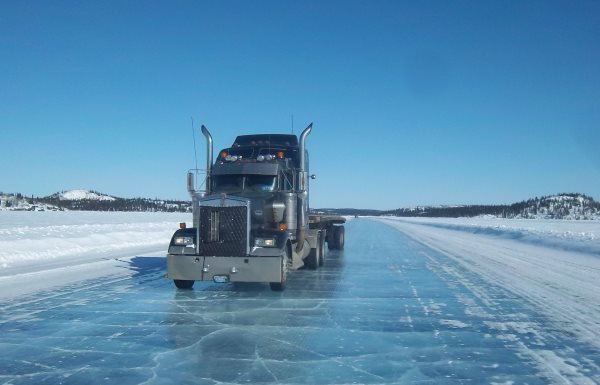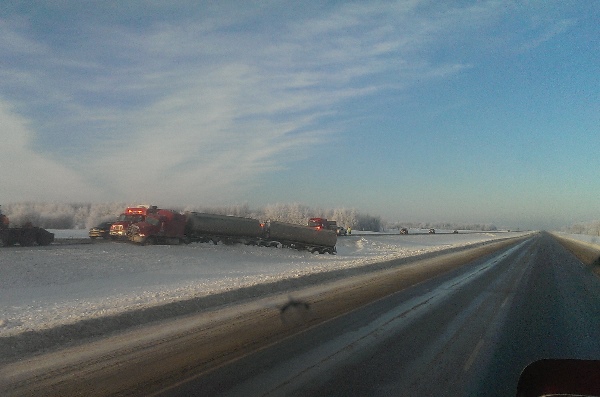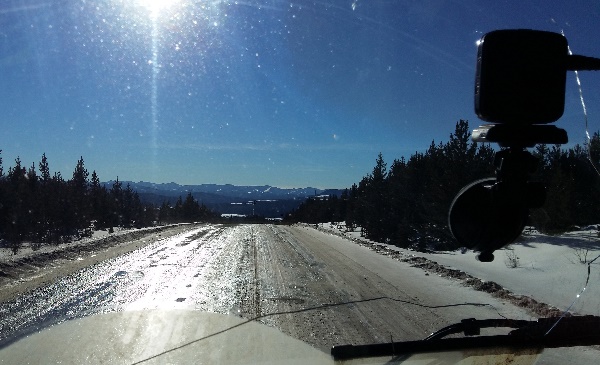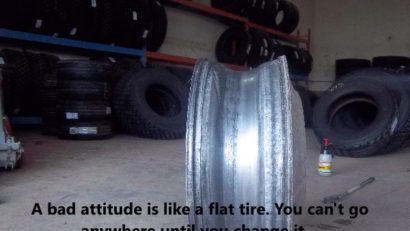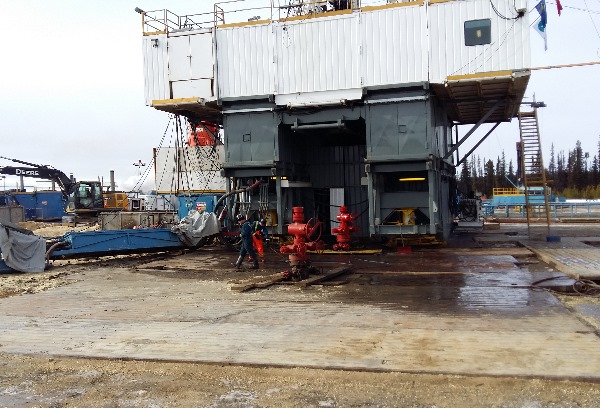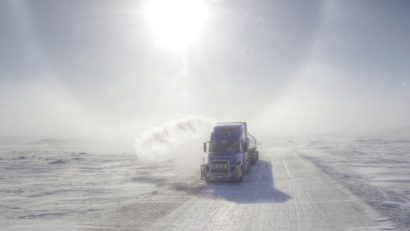Camp Jobs
Camp jobs are popular for truck drivers that don’t want to do a lot of driving. They’re also good for keeping expenses down. Living in a camp means your meals, rooms, and laundry are all paid for. Camp jobs often require you to work for, or be contracted to the oil company or drilling rig directly. You could be hauling water, operating a vacuum truck, or other equipment like road graders, excavators, dozers, and tow tractor operators.
Camp jobs usually have a rotation, so you’ll still have to find a place to live when you’re not in the camp. Fly in, fly out situations are good if you can find them, but they’re getting harder to find with the economy the way it’s been.
“When things are slow, the perks will go.”
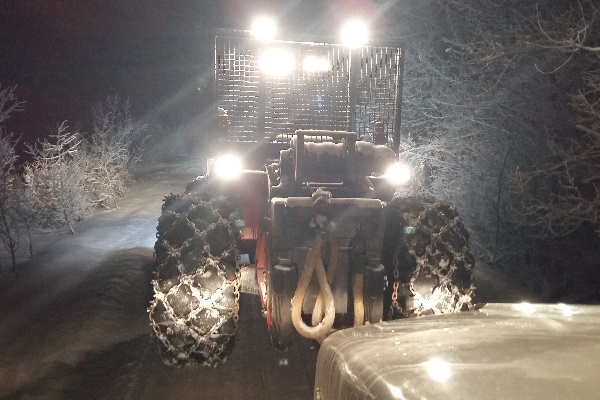
Get used to the terrain in Off Road Trucking and don’t be surprised when you see one of these to tow you up a hill.
Hot shot services
One thing we left out that should be added is Hot Shot services. This is a great job for people that want to be involved in off road trucking, but don’t possess a truck driving license.
You could be delivering anything, at anytime, to anywhere. If someone needs a part to fix a drilling rig that’s shut down, they need it immediately so it’s a demanding job. It’s costing thousands of dollars an hour to stop production. Hot shot companies can have every class of vehicle depending on the size of what you’re hauling.
Oilfield Truckers Log Book
Some companies operate under a special permit in Alberta if their primary business is delivering or picking up from a well site. To sum it up as simply as possible, it’s a 24 day cycle with drivers having to show 3 periods of 24 hours off in the 24 days. So you can work 21 days straight on this cycle before having to take 72 hours off.
I wouldn’t worry about this until you’re working for a company that has this permit. They’ll require you to take a few courses that are a mandatory part of them holding the permit. You’ll learn more about it when you take the courses.
Companies have to jump through a few hoops to qualify for this as you can read here at this link. “Oilfield Exemption Permit” If you visit this link, you’ll also find other links for those interested in learning more about the permit.
Ice Road Trucking
I’m currently in the process of writing an e-book specifically about ice road trucking in the Northwest Territories. This should be available sometime in the summer or fall of 2016, so keep your eyes posted for it. The book itself will cover a 60 day season with lots of stories and a few hundred pictures.
So how does northern oilfield trucking differ from ice road trucking? If you end up trucking in the oilfields, you’ll find a lot of drivers have worked in both of these area. Ice road trucking pays well, but the season can be very short. Ice road truckers often switch to oilfield trucking because there’s a longer season and more of a guarantee.
You’ll find northern oilfield roads are similar to what you may find in ice road trucking. Oilfield trucking is not limited to any particular area, and can serve some extremely remote locations across the western sedimentary basin. This is all considered western off road trucking. There’s a small amount of Oilfield work going on in the Northwest Territories for those of you that like the extreme cold.
Ice road trucking has dedicated and professionally built freight routes to remote areas over seasonal roads called “Winter Road”. They cross frozen rivers and lakes to provide supplies to mines and communities in the northern Canadian Territories and some parts of Alaska. Ice road truckers will encounter a variety of road conditions from pavement, gravel, bush roads, muskeg ice roads, to full ice roads crossing lakes and rivers.
Oilfield trucking has much of the same terrain, except for the lake and river ice roads. Although they both have their dangers and challenges, oilfield trucking terrain the most difficult. The grades are sometimes extreme, and you’re going to different locations every time. Having done both myself, I found the oilfield driving far more challenging than the ice roads.
Muskeg Ice Roads
Northern British Columbia and up to Ft. Nelson there are large oilfields only accessible in the winter. They’re called Muskeg areas (low lying bogs or swamps), and have a different type of ice road. They actually build the roads up like a skating rink in layers after it starts freezing in the winter.
Water truck flooding progressively builds the thickness of ice in layers. This thick layer of ice over the muskeg allows the road to support heavy equipment and supplies brought by trucks. These are usually only shorter secondary roads built off the main gravel roads to service the oilfield lease.
So we covered some off road trucking jobs, and where they fit within the oil and gas industry. Next we’ll get into some specifics of what you can expect driving off road, including information on chaining up truck tires.
Thanks for reading Off Road Trucking
Let’s move on to Oilfield Driving.
